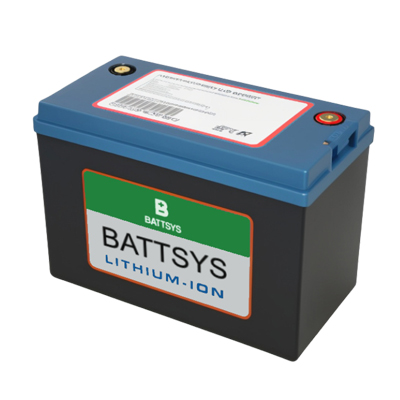Is it better to choose lithium batteries or lead-acid batteries for electric forklifts?
Lithium battery manufacturers tell you: is it better to choose lithium batteries or lead-acid batteries for electric forklifts? In the current electric forklift market, lithium batteries occupy the majority of the market with their many advantages of safety, long lifespan, low cost, energy conservation and environmental protection, and gradually replace lead-acid batteries. Lithium batteries have been applied in scenarios such as electric vehicles, forklifts, iron towers, and base stations. Lithium battery manufacturers tell you which type of battery is good for electric forklifts? Lithium battery or lead-acid battery? What are their advantages?
Is it better to choose lithium batteries or lead-acid batteries for electric forklifts?
The lithium-ion batteries of electric vehicles are limited by various factors, such as range, mileage, and popularity of charging equipment. Therefore, most lithium-ion battery vehicles are used in small areas such as commuters, short distance buses, maintenance vehicles, and cleaning vehicles. The working range of forklifts is generally within the factory area, similar to the above, which is a small-scale operation. Therefore, the advantages of lithium batteries can be perfectly reflected in electric forklifts.

Lithium batteries used in electric vehicles are influenced by factors such as the popularity of charging equipment, limitations on driving distance, and uncontrollable driving areas. Most lithium-ion electric vehicles are now used for commuters, electric maintenance vehicles, sanitation and cleaning vehicles, and short distance buses. However, forklifts are mostly operated within the factory area, with fixed work intensity and environment. The work intensity is universal, and lithium batteries have many advantages in electric forklifts.
The advantages of using lithium batteries in electric forklifts.
① It can significantly reduce logistics costs;
② Cost saving: Save over 40% electricity, reduce management costs, and save space for battery storage;
③ Technical monitoring of forklift and battery status to improve forklift management level;
④ Lead free, more environmentally friendly, in response to national environmental policies.
The difference between lithium batteries and lead-acid batteries in electric forklifts
1. The lithium battery pack has an intelligent lithium battery management and protection circuit BMS, which can effectively automatically cut off the main circuit for low battery power, short circuit, overcharging, high temperature and other faults, and can provide sound and light alarms. Traditional lead-acid batteries do not have the above functions;
2. Lithium batteries weigh only 1/4 of lead-acid batteries of the same capacity, and their volume is only 1/3 of lead-acid batteries of the same capacity. As a result, the mileage that can be operated by vehicles with the same battery level increases by more than 20%;
3. From a safety perspective: Lithium batteries are much inferior to lead-acid batteries, and if overcharged, they may explode. Moreover, if lithium batteries are discarded, they cannot be recycled like lead-acid batteries, and their prices are much more expensive than lead-acid batteries;
4. Service life: Currently, the service life of lead-acid batteries is about 2 years, with a cycle of charging and discharging generally within 300 times. However, lithium batteries with a cycle of charging and discharging exceeding 500 times have a general service life of over 3 years, and some lithium battery manufacturers have proposed a 3-year warranty;
5. Cost wise: Lead acid batteries have more advantages. Because the price of typical lithium batteries is 2-3 times that of lead-acid batteries, this means that choosing a new lithium battery will greatly increase the cost, while lead-acid batteries are relatively economical. In addition, lithium batteries are not easily recyclable and have low recycling costs, while lead-acid batteries can be recycled, disassembled, and reused, resulting in higher recycling costs.
6. In terms of maintenance, lithium batteries for electric forklifts also have significant advantages over lead-acid batteries. After packaging, lithium batteries no longer require water addition and other operations, while batteries require regular water addition, charging and discharging operations, which can be quite troublesome. Lithium batteries also have constant active balancing technology, which reduces the workload and management costs of maintenance and management personnel. It is reported that the discharge rate of lithium batteries can reach over 95%, which greatly ensures the efficiency of operators in this regard.
Due to the unparalleled advantages of
lithium batteries compared to traditional lead-acid batteries, their use in the forklift industry will inevitably have a strong impact on the original forklift market pattern. The emergence of lithium battery forklifts is the trend, and the rapid development of logistics industry requires a forklift with short charging time, long usage time, stable functions, the ability to accept high-intensity operations, and a high degree of automation and intelligence. The emergence of lithium batteries has added a highlight to the development of forklift industry!
